|
7/26/2024 Mental Health Academy's 2024 Suicide Prevention Conference - August 24 - 25, 2024Read Now Mental Health Academy's 2024 Suicide Prevention Conference
August 24 - 25, 2024 The Mental Health Academy's Suicide Prevention Conference is a pivotal event dedicated to addressing and advancing strategies in suicide prevention. Bringing together leading experts, practitioners, and advocates, this conference provides a comprehensive platform for learning and discussion on cutting-edge research, innovative practices, and effective interventions. Attendees will gain valuable insights into the latest developments in mental health support, share best practices, and collaborate on strategies to enhance community and individual resilience. With a focus on actionable knowledge and practical solutions, the conference aims to equip participants with the tools and understanding needed to make a meaningful impact in the field of suicide prevention. https://www.mentalhealthacademy.net/suicideprevention
0 Comments
Never Give Up Outdoor Fitness Community Event
June 22, 2024 from 9:00 - 11:00 AM Cultural Center (formerly known as HCC), 315 Stampede Drive, Nampa, ID 83687 All are invited to the "NEVER GIVE UP" Outdoor Fitness Community Event for a slim shady time full of fun, activities, prizes, music and exercise an a lot of information! This is a FREE community event aimed at encouraging our community to stay active and bring awareness to mental health. Expect: Vendors, prizes, & snacks. Let's come together, get moving, and support each other! Hosted by: Super Nutrition, GFS Home Loans, McAlvain Companies Inc. Don't forget to share your photos and tag @SuperNutrition Learn more at: https://www.facebook.com/SuperNutrition1422/ Suicide Prevention Week
September 10-16, 2023 September is Suicide Prevention Month in the USA, with National Suicide Prevention Week from September 10-16, 2023, and World Suicide Prevention Day on September 10. During this month, week and day, individuals and organizations will be drawing attention to the problem of suicide and advocating the prevention of this tragedy. It’s a time to share resources and stories and promote suicide prevention awareness. All around the nation, suicide prevention organizations will conduct prevention and awareness events. In 2021, suicide was among the top 9 leading causes of death for people ages 10-64. Suicide was the second leading cause of death for people ages 10-14 and 20-34. Suicide is a national health crisis. Suicidal thoughts, much like mental health conditions, can affect anyone regardless of age, gender, socioeconomic status, or background. Suicide is sometimes the result of a mental health condition. Suicidal thoughts, although common, should not be considered normal and often indicate more serious issues. Consider making a tax-deductible donation to support the Idaho Crisis & Suicide Hotline. Even $5 or $10 would make a difference and could help save lives! To donate, visit www.idahocrisis.org/donate. If you or a loved one need to talk, call ICSH now. You don't have to be suicidal to call. Someone is always here for you on the other end of the line. Call or text 988 or visit www.idahocrisis.org to chat online. May is Mental Health Awareness Month, and thank goodness for that!
Mental wellness is being challenged massively with the COVID-19 pandemic, the war in Ukraine, and the climate crisis, on top of everyday stressors. Whether or not we have been diagnosed with a mental illness, it is critical for us all to manage and support our mental health. It matters so much! We must continue to talk about mental health, share our stories, raise awareness, educate others, get help ourselves and give support. Let's #starttheconvo and work to #endthestigma so we can #bethereforeachother in ways that are real and meaningful. If you are struggling please reach out for support. Here are some resources to help: The Crisis Textline offers free, 24/7 crisis counseling, via text. Just text SHARE to 741741 to reach them. National Suicide Prevention Lifeline gives 24/7, free and confidential support for people in distress, prevention and crisis resources. Call 988 for support! The Depression & Crisis Hotline, offers help at 1-800-784-2433. Veterans Crisis Line is available at 1-800-273-8255 and Press 1 or Text 838255. Emotional Health Relief Hotline has caregivers available 10am-10pm MST, 1-833-442-2211. Idaho Crisis & Suicide Hotline is available 24/7, call 988 or 208-398-HELP (4357). The Crisis Hotline, Serving Southern and Southeastern Idaho, 24/7, 208-788-3596. For more mental health & crisis help resources visit: https://www.mygriefconnection.org/crisishelp.html NAMI Walks Idaho
Saturday, May 20, 2023, at 12:00 PM at Ann Morrison Park, in Boise, Idaho. Participate in NAMI Walks and support the mental health movement in Idaho! NAMI Walks is a free 5k(ish), run/walk/stroll on the beautiful Boise Greenbelt, with an opportunity for fellowship and advocacy in support of a great cause - Register for free, gather your team, and earn NAMI swag with each level of fundraising. - Represent your organization. Dress up, bring your signs, and help us de-stigmatize mental illness! - Honor and support your friends and family dealing with mental health issues. - Support NAMI programs and services in YOUR community. Every penny raised stays in Idaho! Join them on Saturday, May 20, 2023, at 12:00 PM (Noon) at Ann Morrison Park, in Boise, Idaho. Register today at www.tinyurl.com/NamiWalksID2023 Construction Working Minds Summit: A Holistic Approach To Job-Site Safety
Register soon as the EARLY BIRD DISCOUNT ENDS on January 27th! Pre-conference Sessions: Monday, March 27th, 2023 Summit: Tuesday-Wednesday, March 28-29, 2023 Kansas City, Missouri at the Westin Kansas City at Crown Center Construction Working Minds Summit: A Holistic Approach To Job-Site Safety will be hosted by the Construction Industry Alliance for Suicide Prevention & United Suicide Survivors International from March 27-29, 2023 in Kansas City, Missouri. The goals of the summit are: 1. To connect the dots among other wellbeing, health and safety priorities and mental health (e.g., DEI, physical health, etc.) 2. To share lessons learned in building industry capacity and scaling implementation 3. To strengthen strategic alliances across the movement and establish collaborative partnerships Who: All advocates for construction workers well-being What: Speakers Roundtable Discussions, Case Studies, Best Practices, and more! How Much: With Early Bird Discount - $100, After Early Bird - $150 Where: Westin Kansas City at Crown Center (downtown), 1 E Pershing Rd, Kansas City, MO 64108 For discounted rates, book by February 28th. Register for the summit at: https://www.constructionworkingminds.org/summit Bend Not Break: Suicide Prevention Concert
Rescheduled to May 13, 2022 at Maverik Center in a West Valley City, Utah Concert starts at 7:00 PM. Doors Open at 6:00 PM. America's Got Talent Alumni Alex Boyé, known for his dynamic African-infused music that has gained over 1 billion views on YouTube is using his voice to shine a light on mental health and suicide prevention. Join Alex and friends on May 7th. at Maverik Center for Utah’s first ever Utah Suicide Prevention Concert. Utah has the 6th highest suicide rate in the U.S. On average, someone dies by suicide every 13 hours in the state of Utah. We can’t be silent anymore when it comes to mental health simply because it might be uncomfortable. The cost of silence is TOO HIGH. The concept is simple; to normalize and encourage ongoing conversations about mental health within schools, the workplace, churches and throughout the community. These concerts to help build connection with mental health experts, provide support and healing in our community. This will be an unforgettable night that will feed your soul in ways you didn’t think you needed. This is not just a concert. It will be an experience. THIS CONCERT IS FREE AND IS BEING DONATED VIA CORPORATE SPONSORS. If you are your company would like to be a co-sponsor, contact 801-427-7439 for more information. If you are a mental health organization or a therapist group/Individual and would like to set up a booth at the event; contact Jackie at The Maverik Center at 801-988-8843. For more info on Alex’s foundation and his purpose, go to: https://lnkd.in/gP5QXiuQ Tickets will be Free Admission and will be available to the public starting Wednesday February 9th at 10AM. Limited seating available on a first come first serve basis. Grab your FREE tickets at: www.maverikcenter.com The Mental Wellness Connection Online Summit
April 18 - 24, 2022 The Mental Wellness Connection is a FREE online summit taking place April 18th-24th that aims to answer these questions and much more. It’s full of practical wisdom and simple but powerful pathways to improving your mental health from a root cause perspective and accelerate your healing potential on all fronts. This transformative summit can help you: - Identify and address the underlying causes of any mental health challenges you may be facing - Harness the restorative and nourishing power of sleep - Stabilize and boost your energy and motivation - Understand the brain-gut connection - Find natural solutions for depression, anxiety, and ADHD outside of outdated healthcare paradigms - Implement diet, detox, and nutrition strategies into your daily routine And much more! This event is particularly special because it brings together a panel of the world’s most trusted mental health advocates including doctors, therapists, nutritionists, energy workers, and more. You won’t just learn valuable ways to improve your diet, exercise, and sleep hygiene—you’ll also discover the science behind how your gut, mitochondria, and more impact your mental health moment to moment. In other words, you’ll come away with a big picture understanding of WHY your body and mind are connected, as well as exactly HOW you can nurture this relationship to experience greater purpose, joy, and connection in life. Register for the FREE at: https://mentalwellness.byhealthmeans.com/ 12/26/2021 Connection Is The Cure Mental Health Awareness & Suicide Prevention concert event - 05 Jun 2021Read NowConnection Is The Cure
Wednesday, January 5, 2022 Ford Idaho Center Arena - 16114 N. Idaho Center Blvd., Nampa, ID 83687 FREE ADMISSION, No tickets required Doors & resource booths open at 5:30 PM On-stage event begins at 6:30 PM All are welcome to attend this mental health awareness and suicide prevention concert event featuring Alex Boyé: Connection Is The Cure on Wednesday, January 5, 2022 at the Ford Idaho Center Arena. For more information visit: https://www.connectionisthecureidaho.org/ 12/9/2021 Preventing a Crisis: Straight Talk on Youth Mental Health & Suicide - 15 Dec 2021Read NowPreventing a Crisis: Straight Talk on Youth Mental Health & Suicide
Wednesday, December 15, 2021 from 6:00 - 8:00 PM MST Northwest Nazarene University Brandt Center Auditorium 623 S. University Blvd. Nampa, Idaho 83651 Due to recent deaths by suicide among our Canyon County students, we need to have a serious conversation with parents and guardians about youth mental health including anxiety, depression, and suicide. This adults-only conversation will highlight prevention and intervention resources and strategies. 10/10/2021 It's Oct 10th, World Mental Health Day! Mental health care for all: let's make it a reality.Read NowIt's Oct 10th, World Mental Health Day!
Mental Health Care For All: Let's Make It A Reality Did you know that: Close to 1 billion people have a mental health disorder A leading cause of illness & disability is depression 1 person dies every 40 seconds from suicide 3 million people die every year due to harmful & excessive use of alcohol 2021's World Mental Health Day, comes at a very challenging time for us all when our day-to-day lives have been drastically altered due to the COVID-19 pandemic. There have been so many changes and so much instability. People, including those with mental health conditions, are experiencing even greater levels of social isolation than before the pandemic. And so many people are managing the grief of losing a loved one, often without being able to say goodbye or even hold proper funerals or memorial rituals. No doubt the need for mental health and psychosocial care and support will continue to greatly increase in the months and years to come. The COVID-19 pandemic has had a major impact on people’s mental health. Some groups, including health and other frontline workers, students, people living alone, and those with pre-existing mental health conditions, have been particularly affected. And services for mental, neurological, and substance use disorders have been significantly disrupted. Funding and investment in mental health programs on all levels is more critical than ever before. Let us honor the work that all health and care professionals do every day, which often includes providing mental health care for others. For this reason, the goal of the World Mental Health Day 2021 campaign is to make mental health care accessibility a reality for all! For more information, please visit: https://www.who.int/ Our Future In Mind: Mental Health Summit
Streaming live Friday, November 5th, 5:00 PM - 8:00 PM EST & Saturday, November 6th, 12:00 PM - 6:00 PM EST. Mental Health America and I Don't Mind, in partnership with YouTube, as they present "Our Future In Mind: Mental Health Summit," a live free two-day event November 5 & 6, 2021. The first of its kind, this event will give you a front-row seat to the stories behind some of the biggest movements in mental health and the tools you will need to be part of the change. Streaming live on YouTube, you’ll gain insight into how they got started, and you’ll learn (and unlearn) from young mental health experts to help you find your unique pathway into activism. Your voice matters. Your mind matters. It’s time to take action. Sessions will cover a variety of topics like equity and disability in mental health, using social media for good, and LGBTQ+ leadership and wellness. You’ll learn from open and honest conversations with a diverse group of artists and actors, TikTokers, YouTubers, mental health experts, and more. Register for FREE at: www.idontmind.com How to Handle COVID-Related |
Details
Sara J. CobbFounder, My Grief Connection Archives
July 2024
Categories
All
Note: The website contains some affiliate links, which means that if you purchase something through one of these links we may receive a small commission
– at no extra cost to you. I only promote things I have have either personally tried or strongly believe are beneficial. Any commissions earned helps keep this website going. Thank you for using our affiliate links to help My Grief Connection to continue helping grievers find help & hope. Not responsible for the content, claims or representations of the linked sites, videos, movies, podcasts, groups, events, books, articles, etc. This site provides links and general grief support information and is not intended to serve as or replace professional counseling, guidance or treatment. If you are thinking about hurting yourself or someone else, please contact 911 or the suicide hotline at 988. For any type of crisis situation you can text CONNECT to 741741 to chat with a Crisis Text Line counselor. My Grief Connection - Created 04 July 2019 - Privacy Policy This Page Was Updated On 26 July 2024 © 2019-2024 My Grief Connection
|


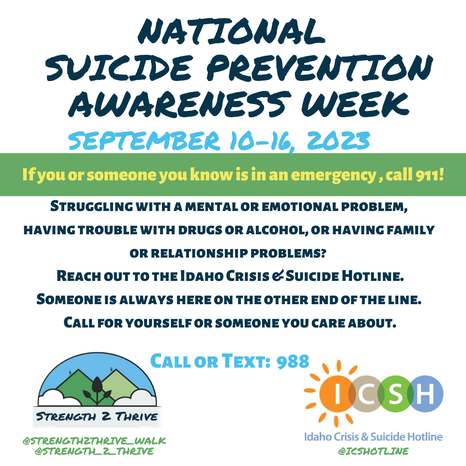
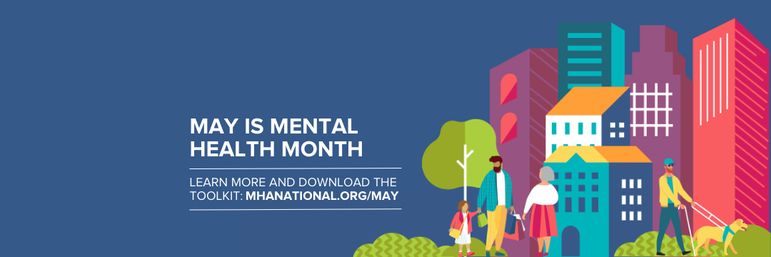


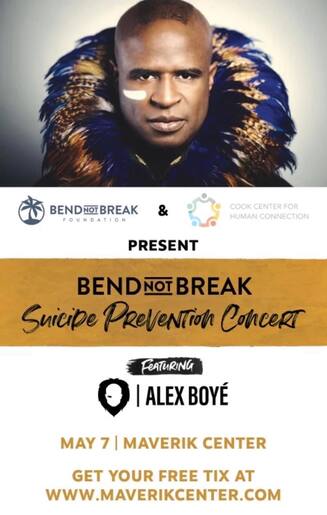
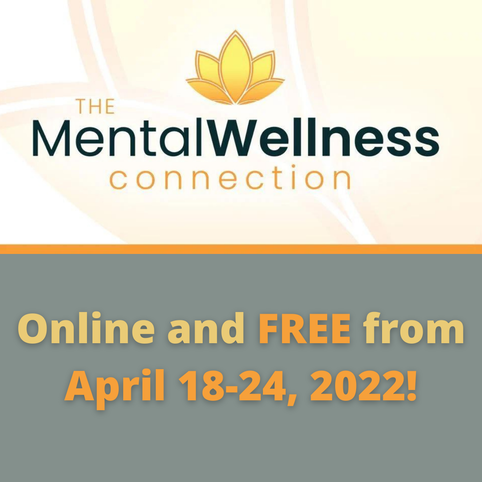
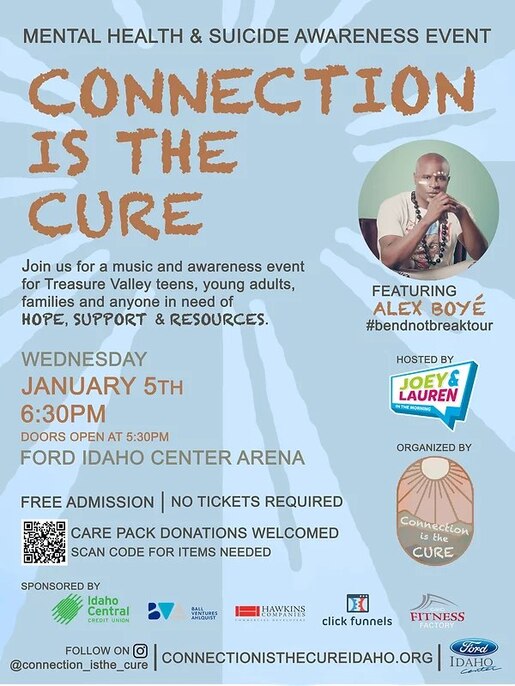
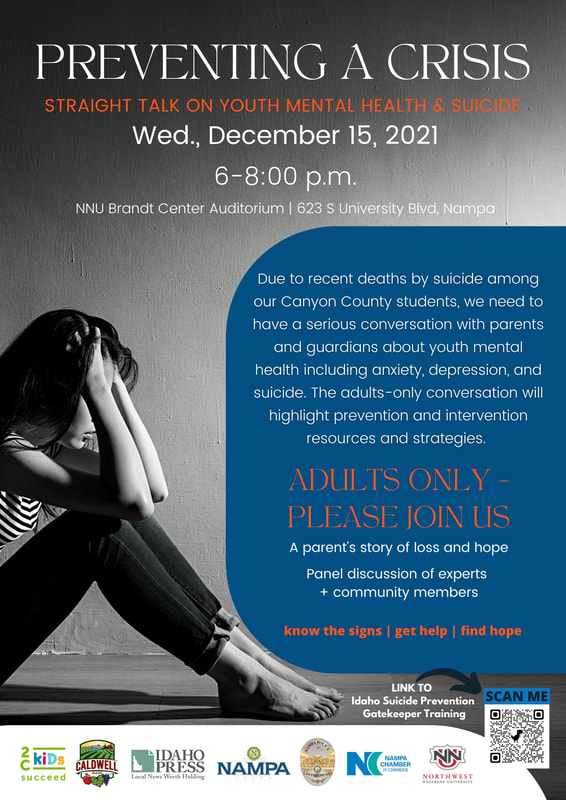
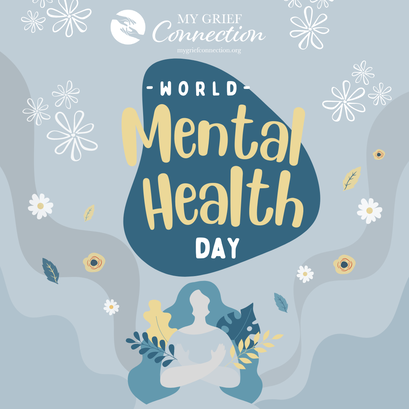
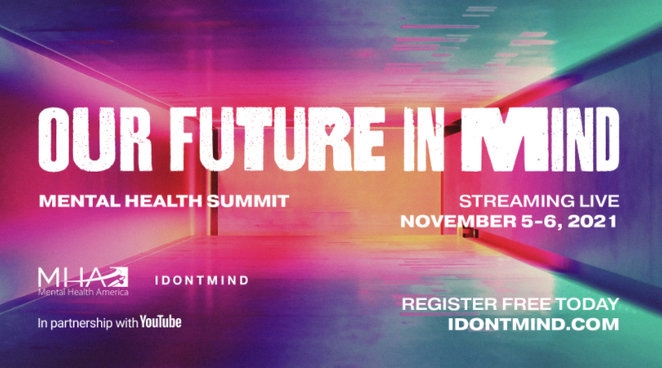

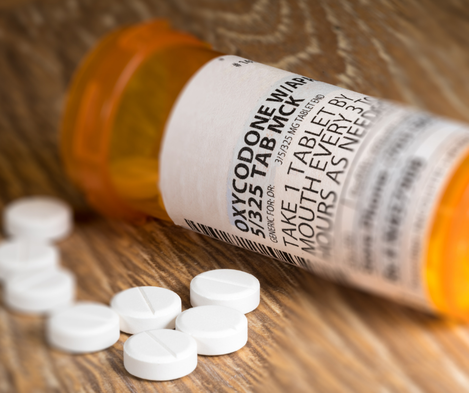
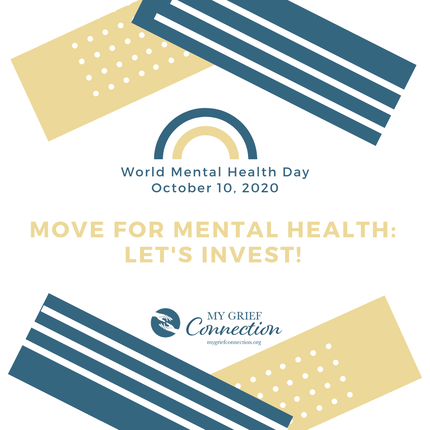
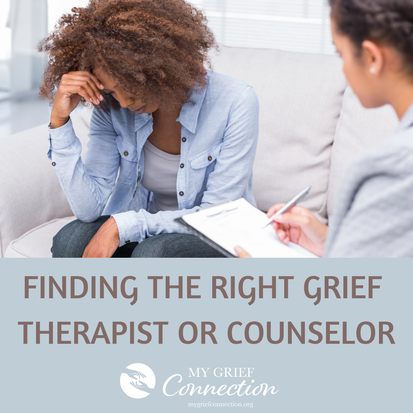
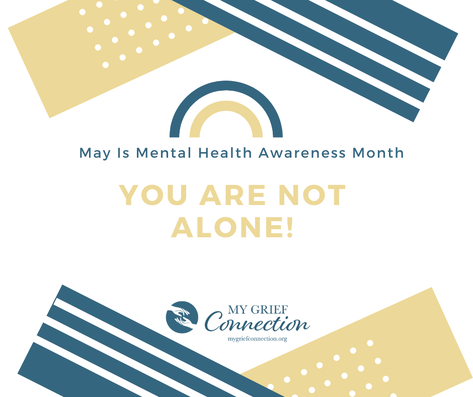
 RSS Feed
RSS Feed